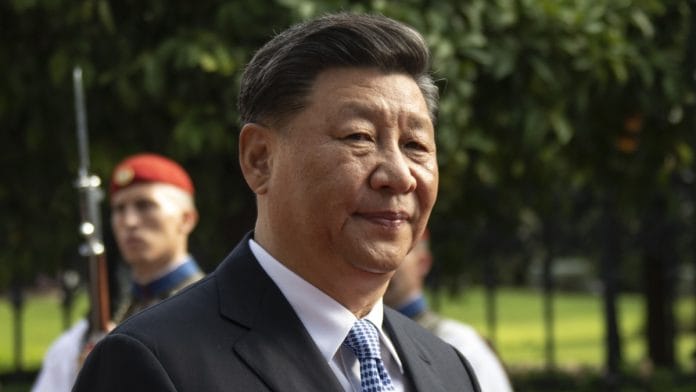New Delhi: Xi Jinping’s controversial move allowing Beijing to draft the national security laws for Hong Kong, despite withdrawing from it last year, shows that the Chinese president was only buying himself time and preparing for another opportunity.
China’s Parliament on Thursday passed a new legislation for Hong Kong, that will for the first time empower Beijing to draft national security laws for the Special Administrative Region (SAR). It is over this bill that Hong Kong erupted in massive protests for several months last year. There was a widespread feeling that the Chinese were going to send in troops and there was going to be a Tiananmen Square-type situation in Hong Kong. But the Chinese withdrew the bill, and the whole world from outside might have seen it as a capitulation by the Chinese authorities and a big victory for Hong Kong’s democracy agitators.
But those who knew the Chinese better, knew that they had decided to cut their losses at that point and to wait for another opportunity, Shekhar Gupta said in episode 483 of Cut The Clutter.
Xi Jinping seems to think that his opportunity has come now.
An educated guesswork, would be that this is happening now because America is just about 150 days from the national elections. Because it is in election mode, like any other democracy, its ability to do something really decisive vis-a-vis Hong Kong is very limited.
Second, American power is at its weakest in a very long time. Donald Trump has gone around threatening to undermine everybody else’s power, but in a sense, he has ended up undermining America’s power and its allies’ power.
Finally, back in 1997, Hong Kong was like the engine that was driving China. But 23 years since then, now China is the engine driving the world’s economy. So that equation is completely changed, Gupta said.
Hong Kong’s GDP is about 380 billion dollars currently. While this isn’t a small number, it pales in comparison to China’s GDP which is 14.1 trillion dollars. So China thinks it can afford to take a few risks with Hong Kong now.
Also read: Xi Jinping faces a threat: China’s millions of newly jobless people
‘What is all this power worth, if I can’t make use of it.’
The UK, US, Australia and Canada issued a joint statement following the passing of the legislation, criticising the move in very strong words. The legislation would “curtail the Hong Kong people’s liberties, and in doing so, dramatically erode Hong Kong’s autonomy and the system that made it so prosperous,” the statement said.
Secretary of State Mike Pompeo too had earlier this week said that Hong Kong no longer enjoys a high degree of autonomy from China — a move which could have greater implications such as loss of Hong Kong’s special trading status with the US, and risk its position as a global financial hub.
But China is undeterred by the criticism, and there’s a reason for it. “In Xi Jinping’s mind, China is way bigger than what it used to be,” Gupta said. While other leaders before him may have reassured the world that China’s rise will be peaceful, Xi Jinping is different. Xi Jinping says ‘look, what is all this power worth, if I can’t make use of it.’
China not only stood its ground, but also threatened ‘countermeasures’ against the UK and US for its ‘interference’ in the Hong Kong legislation. China’s foreign ministry spokesman Lijian Zhao Friday warned countries that Hong Kong is “purely an internal Chinese matter” and that “no other country has the right to interfere”.
How the law affects Hong Kong
The legislation was passed in the Congress with an overwhelming, but not surprising, 2878 votes for, and one against it.
Here’s why the people of Hong Kong are against the law.
First of all, the law will criminalise anything that it describes as subversion of state power, secession, organising or carrying out terrorist activities. Anything can be described as terror, sedition, an act of endangering national security, or colluding with foreign powers.
Essentially, this also means that once the law comes through, then the Chinese government’s security and intelligence agencies can start functioning formally and openly in Hong Kong.
Right now, they do so only undercover or, clandestinely. But once this law comes in, then they can do it openly, Gupta said.
Also, the Western powers as well as critics within Hong Kong say that this is violative of the ‘basic law’. The basic Law is a special constitution or constitutional dispensation designed for Hong Kong to give it autonomy in governing, under the “one country, two systems” arrangement.






